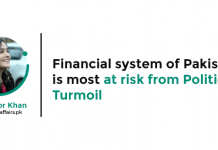Every culture has valued economics as the branch of human activity concerned with the production of products, the acquisition of money, trade, and the exchange of services and goods. In Muslim communities, unlike their foreign counterparts, economics was never considered a separate discipline. Islam has described the complete economic policy in a very efficient manner via Quran and Sunnah.
Even if it is ideal, equality of income and comfort for all individuals does not guarantee undifferentiated ease for the people. As there is no way that all individuals have the same intellect. On the other hand, because no two people’s fortunes are the same. Islam introduced the concept of zakat, which is a tax imposed on those who meet certain criteria described by Shariat. Also, it gets distributed among poor and needy people. Islam called them ‘Masaraf e Zakat’.
Therefore a judgment can be made that all are equal before Islam because money shouldn’t be restricted up to a single hand, Furthermore, it appears that, in the interests of humanity, it is preferable to have different levels of income, with the poorest having a greater desire and motivation to work harder. Everyone is aware that human survival is in continuous growth. Everyone wants a better lifestyle but if one will spend money on the way of Allah Almighty in terms of charity for the sake of God. In such a vast history of Islam, the reign of Hazrat Umer (R A) can’t be neglected. He played a crucial role in the development of the economic stability of Muslims. He proposed a proper framework of economic stability and introduced various departments. His policies are according to the teachings of Islam. The ideas of foreign exchange and economic governance along with Bait-ul-Maal are extremely appreciable.
Islamic commercial law explains economic concerns at both individual and social levels. Islamic economics focuses on conducting business by the Shari’ah. Multifaceted possession, economic freedom within a certain boundary, and social justice are three core ideas of Islamic economics. Everything in the universe belongs to God, according to Quran, God is the actual owner of all the universe.
Even though, the acquisition of property, as well as its use and disposal, are governed by the restrictions and principles established by Shariah. According to Islam, both the individual and society’s success are dependent on a balance between man’s spiritual and material requirements. As previously stated, man is not the real custodian. In Islamic economic history, markets have played an essential role as unique sites for trade. The price mechanism regulates markets. In terms of Islamic teachings, the forces of supply and demand have long been acknowledged as bringing the market to a state of balance. People are free to conduct business and trade products and services. Only if a violation is done illegally, the state can interfere. This duty was under the jurisdiction of Qazi (Judges).
In short, Islam has set a proper and balanced economic system for Muslims, and being Muslim we must follow the teachings of Islam. Islamic economic system will lead us to success and prosperity.
……….The End……….



